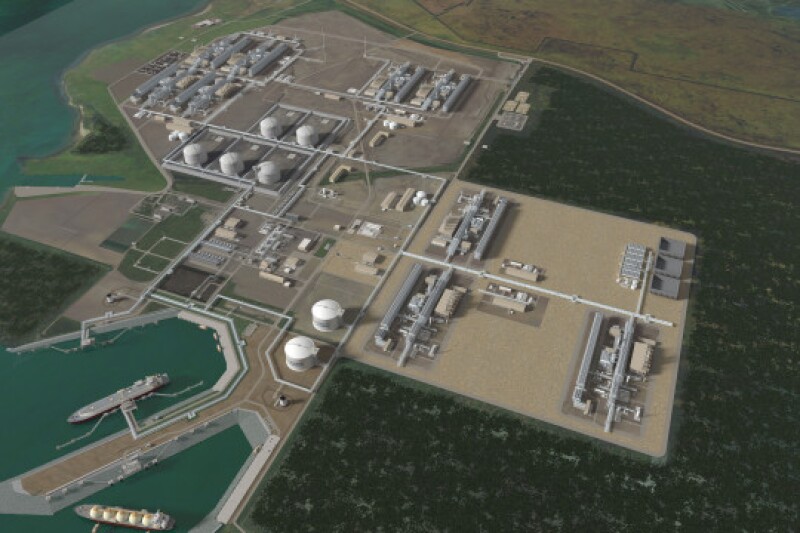US liquefied natural gas exporter Cheniere Energy has initiated the pre-filing process with the US Federal Regulatory Commission (FERC) for a 20-mtpa expansion of its Sabine Pass liquefaction complex (SPL) in Cameron Parish, Louisiana.
The Houston-based company’s Sabine Pass Stage 5 Expansion Project is being designed to include up to three large-scale liquefaction trains, each with a production capacity of approximately 6.5 mtpa of liquefied natural gas (LNG), a boil-off-gas reliquefaction unit with an approximate production capacity of 0.75 mtpa of LNG, and two 220,000 m3 LNG storage tanks, along with waste heat recovery and carbon capture capabilities, according to Cheniere.
“As the first and largest LNG export facility in the Lower 48, Sabine Pass has pioneered an industry critical to supplying reliable, flexible, and cleaner burning natural gas to markets and customers around the world, and we look forward to significantly growing those capabilities through the SPL Expansion Project,” said Jack Fusco, Cheniere president and chief executive officer. “The SPL Expansion Project is being designed to leverage the infrastructure platform we’ve built at Sabine Pass to deliver economically advantaged incremental LNG capacity in a safe and environmentally responsible manner.”
The Sabine Pass LNG terminal, which first came online in 2016, consists of 6 liquefaction trains with a total production capacity of about 30 mtpa of LNG. The terminal also has operational regasification facilities that include five LNG storage tanks, vaporizers, and three marine berths. Cheniere also owns the Creole Trail Pipeline, which connects the Sabine Pass LNG terminal with several large interstate and intrastate pipelines.
The existing infrastructure of the Sabine Pass LNG terminal is expected to deliver significant benefits to the expansion project, with various enhancements to its current capabilities possible, including optimized ship loading at the existing marine facilities, the company said, adding that feed gas to the SPL Expansion Project is expected to be transported via a combination of new and existing pipelines.
The company is targeting project construction to commence in the fourth quarter of 2025, with a full project in-service date expected for the second half of 2032, according to its filing documentation with FERC.
Cheniere engaged Bechtel Energy to complete a front-end engineering and design study of the SPL Expansion Project. The project and any necessary supporting infrastructure remains subject to receipt of all required regulatory approvals and permits and sufficient commercial and financing arrangements before a final investment decision can be reached.
In addition to the SPL complex, Cheniere operates the Corpus Christi liquefaction complex with an LNG production capacity of 15 mtpa. In March 2022, Cheniere announced that it had signed a contract with Bechtel to begin initial work expanding the Corpus Christi LNG terminal, with the project FID announced in June 2022. The expansion consists of up to seven midscale trains, with a total production capacity of more than 10 mtpa.


